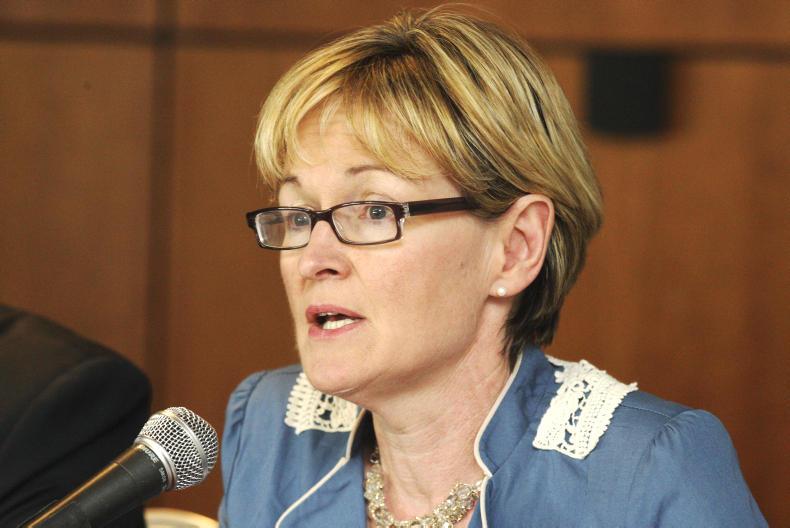McGuinness joined Irish Farmers Journal editor Justin McCarthy and RTÉ broadcaster Damien O’Reilly to look forward to the coming year on Radio 1’s Countrywide show this Saturday.
“This is the most uncertain year that we enter,” she said, as discussions on the next CAP from 2020 begin in earnest – with the UK’s effective exit from the European Union due to take place in the intervening time.
It remains unclear whether the UK will make a clean break with the EU, or retain some ties in exchange for continuing financial support along the Norwegian model.
“We don’t know where that will be post 2020 in terms of budget contributions, whether there will be any or none,” McGuinness said.
She added that this happened in the context of a more fractured Union.
”Let’s be frank about this. In many member states, their taxpayers are saying: ‘Can we continue to contribute to European budget in the way that we do now?’”
@farmersjournal @RTECountryWide Ilooking into the future of farming for 2017 @RTERadio1 pic.twitter.com/3WTKTPkZOY
— Mairead McGuinness (@MaireadMcGMEP) 7 janvier 2017
While McGuinness said the principle of a common agricultural policy was not under threat, the debate is thrown wide open on the level of financial support available and the efforts expected from farmers in return.
“On that point, I can give no guarantee other than the parliament will fight for a decent budget for agriculture. But what’s very clear from the mouth of Commissioner Hogan is that he wants the future CAP to deliver more for the environment,” she said, warning that agriculture will have to do more on climate change and biodiversity. “The dilemma there is: does it become so complicated, so bureaucratic, so audited that it becomes unworkable for farmers?”
€1 billion was spent in Europe to tackle the dairy crisis and it took a long time, and it was slow to respond
While she warned that price volatility was here to stay, McGuinness added that recent experience had raised questions about the budget needed to address it.
“One billion euro was spent in Europe to tackle the dairy crisis and it took a long time, and it was slow to respond,” she remarked.
McCarthy, too, brought up the lack of European response to volatility, especially that caused by Brexit and the devaluation of sterling since the UK referendum.
“It’s been very frustrating that small to medium enterprises, including farmers, have been left wholly exposed to what is a political issue,” he said. “I think it’s wrong that Europe has stood by and there has been no intervention in addressing that.”
In this vacuum, he called for the Irish agri-food sector to unite in preparing for the worst-case scenario arising from Brexit.
“Have one policy instead of many competing voices within the sector,” he said.






 This is a subscriber-only article
This is a subscriber-only article










SHARING OPTIONS: